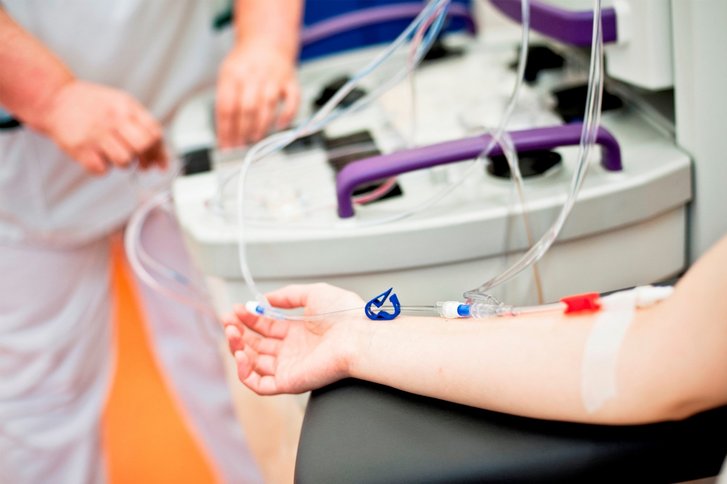
The procedure is similar to blood washing (dialysis): the blood taken from the patient is separated into its components by a centrifuge. The white blood cells (leukocytes, cells of our immune system) isolated in this way are treated with a light-sensitizing drug and irradiated with UVA light of a certain wavelength (phototherapy). The treated blood is then returned to the patient.
Which diseases are treated?
ECP has a favourable influence on the immune system and allows diseases to subside. This includes for example:
- cutaneous T-cell lymphomas (malignant new formation of the immune system)
- Graft-versus-Host-Disease (rejection reaction during transplantation)
- systemic scleroderma (a very rare connective tissue disease associated with a hardening of the skin)
- atopic dermatitis
In addition, ECP can be combined with immunomodulators, i.e. drugs that act on the immune system. The treatment is carried out on an inpatient basis and is initially every two weeks, thereafter less frequently.